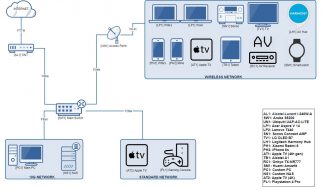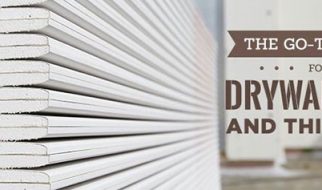What is the latest thinking on avoiding coffee before a blood test?
You have a problem. You must fast for 12 hours (overnight) before your blood test, but you have a real dependence on coffee or caffeine. You need that cup of caffeinated energy before you even walk out the door. Otherwise, grogginess, a headache and a general feeling of malaise may set in.
May we suggest that you get up earlier than your usual coffee time and arrive at the laboratory as early as possible? The only problem is, many medical testing labs open at 8 a.m., well past the time most people are up and getting ready to take on the day. And the busiest time of the day for most labs is 8 a.m. to 10 a.m.
Drinking coffee and eating are OK before some blood tests but not others, and some doctors say any black coffee at all before is OK even before a cholesterol test as long as you don?t add cream or sugar. Ask your doctor if you can drink coffee before a test.
Blood work and coffee
Mayo Clinic Medical Laboratories allows some drinking of coffee up to two hours before some tests:
Is having black coffee fasting? Doctors keep telling patients it is all right to have black coffee before fasting blood work (fasting sugar, fasting lipid panel).
It depends to some extent on what test is being performed, but for many tests that require fasting, intake of non-carbohydrate containing liquids a few hours before testing will not impact results. We have worked here to make 1 standard definition of ?fasting? that encompasses most test requirements. We allow clear liquids (water, black coffee) up until 2 hours before a test or procedure. The definition of fasting should be clarified for all procedures in your institution if possible.
This article on Livestrong.com seems to contradict Mayo about a fasting blood test: ?While you may consider black coffee little more than water, drinking it causes you to absorb caffeine and other organic compounds into your bloodstream. You need only plain water, without added vitamins, flavoring or carbonation, to achieve the correct fluid and electrolyte balance in your blood chemistry.?
Guidelines on common blood tests
This British National Health Service page has some fasting guidelines on some common tests:
- Fasting glucose blood test: This test helps a doctor diagnose a patient for diabetes, which is caused by having too much sugar in the blood. For this test, one needs to abstain from all foods and drinks except water for eight to 10 hours beforehand.
- Iron blood test: These are usually taken in the morning before eating anything, and also after avoiding iron or iron-containing pills from 24 hours beforehand. This test can help diagnose anemia, or having too few red blood cells, a condition that can be caused by iron deficiency.
- Lipid profile or cholesterol test: This is one test that doctors require many people to get with today?s diet of high-fat and high-cholesterol foods. The doctor will probably tell you to drink only water and not to eat anything for up to 12 hours before the phlebotomist draws your blood. Doctors test for what is called good cholesterol, bad cholesterol, the total number of cholesterols and triglycerides or other types of fats.
Don?t smoke or chew gum
WebMD has some advice, saying you shouldn?t even exercise, smoke or chew gum, all of which can skew results by revving up digestion, before the cholesterol test. But take medications unless your doctor specifically tells you not to. That said, avoid or ask for permission before taking over-the-counter medications.
WebMD delineates a few tests that always or usually require fasting, including:
- Comprehensive metabolic panel, which doctors order as part of a yearly physical to test check your blood sugar, electrolyte and fluid balance, kidney function and liver function.
- Vitamin B12 test: Doctors order the vitamin B21 test to measure the amount of this vitamin the blood. This test helps diagnosis one type of anemia and other problems. Your doctor will likely ask you again all the medications you take because some drugs can interfere with this test.
- The Gamma-glutamyl transferase test shows the level of the GGT enzyme in your system. A high reading may indicate liver disease, alcohol abuse or bile duct problems, WebMD says.
The fasting time for these tests varies from 8 to 12 hours. Your doctor should give you instructions on whether to fast and how long.
Why fast before blood tests?
WebMD answers the question about why one needs to fast:
Nutrients in food and drinks go into your bloodstream and can change things measured by the tests, skewing your results. For instance, if you eat or drink before a fasting blood glucose test, your blood sugar probably will be higher than if you hadn?t had anything. When you?re fasting, doctors get a baseline result so tests can be compared to give a true picture of your sugar levels over time.
Water before a blood test
Registered nurse Kathy Reutter, writing in this blog at One Medical, says many people mistakenly think they need to avoid water during fasts. Not so, she says. In fact, drinking enough water may help you feel better during a fast and also plump the veins for an easier blood draw by the phlebotomist. She states that blood is about 50 percent water.
If you forget and have some coffee with cream and sugar or even a meal the morning of a cholesterol test, don?t panic just yet. CBS News reports that when researchers examined data from 209,000 participants in one study with fasting times ranging from one to 16 hours, there were small differences.
2 percent difference
?On average, there was less than a 2 percent difference for total cholesterol and HDL cholesterol, less than a 10 percent difference for LDL cholesterol and less than a 20 percent difference for triglyceride levels ? regardless of fasting times,? CBS wrote in 2012 in the article Fasting may not be necessary before cholesterol test.
Unless your medical situation really requires that a test be done quickly, you can always delay a test if you forget and eat or drink something when your doctor requires a true fast ? that is, just water up to 12 hours before the test. Some laboratories now allow patients to set appointments, but if you have an appointment and you forget and eat or drink, call and cancel the blood drawing.
Do what the doc says
You should still do as your doctor orders, however, because he may be ordering tests that he hasn?t told you about ? tests that do require fasting. That?s the rule for any type of test, urine or blood ? always follow the doctor?s orders. He may order a few types of tests from one blood drawing.
This post appeared first on http://goviter.com/blog/avoiding-coffee-before-a-blood-test/

